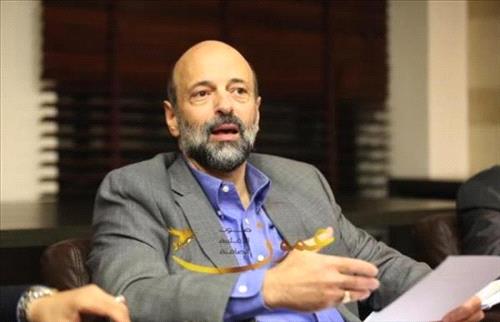-
Top Stories -
Most Popular
-
King to open first regular session of National Assembly on Monday
-
ASE closes trading with 0.16% increase
-
Saudi Arabia hold Australia 0-0 away in World Cup qualifier
-
King sends cable to Abbas on anniversary of declaration of Palestinian state’s independence
-
Prince El Hassan conveys message from King to Japanese PM
-
Gov't settles debts worth JD2.95 billion during first 9 months of 2024
-
In new count: Gold prices see drop by 30 piasters
-
30th Dubai Shopping Festival to kick off in December
-
Amman International Stadium prepares to welcome Al-Nashama fans
-
France mounts security operation for Israel match after Amsterdam violence
-
Ministry of Energy: National efforts to explore for oil and gas
-
Energy Minister: New Electricity Law to Enhance Efficiency and Stability of Power System
-
SSC reports surge in voluntary enrollments, reaches 100,000 active subscribers
-
A military aircraft, following royal orders, rescues a Jordanian woman injured in an incident in Saudi Arabia
-
150 million dinars is Jordan’s annual loss due to cyber attacks
-
23 individuals involved in drug dealing, smuggling arrested
-
Dana Reserve: Where Three Ecosystems Meet in Jordan's Wilderness
-
Two German funding grants for Jordan totaling 36.5 million euros
-
Israeli forces shoot youth near Ramallah, detain two others
-
19 years since the Amman bombings .. and Jordan is more stronger
Razzaz participates in interactive panel with university students on 2020 budget
27-11-2019 10:28 AM
Ammon News - AMMONNEWS - Prime Minister, Omar Razzaz, participated in an interactive session with a number of students of Jordanian public and private universities, at the invitation of the Center for Strategic Studies (CSS) at the University of Jordan, dedicated to discussing the general budget and government priorities. |
- no comments
Ammon News reserves the right to delete any comment at any time, and for any reason, and will not publish any comment containing offense or deviating from the subject at hand, or to include the names of any personalities or to stir up sectarian, sectarian or racial strife, hoping to adhere to a high level of the comments as they express The extent of the progress and culture of Ammon News' visitors, noting that the comments are expressed only by the owners.
| name : * | |
| comment : * | |







 comment replay
comment replay 